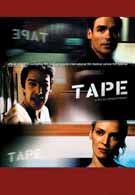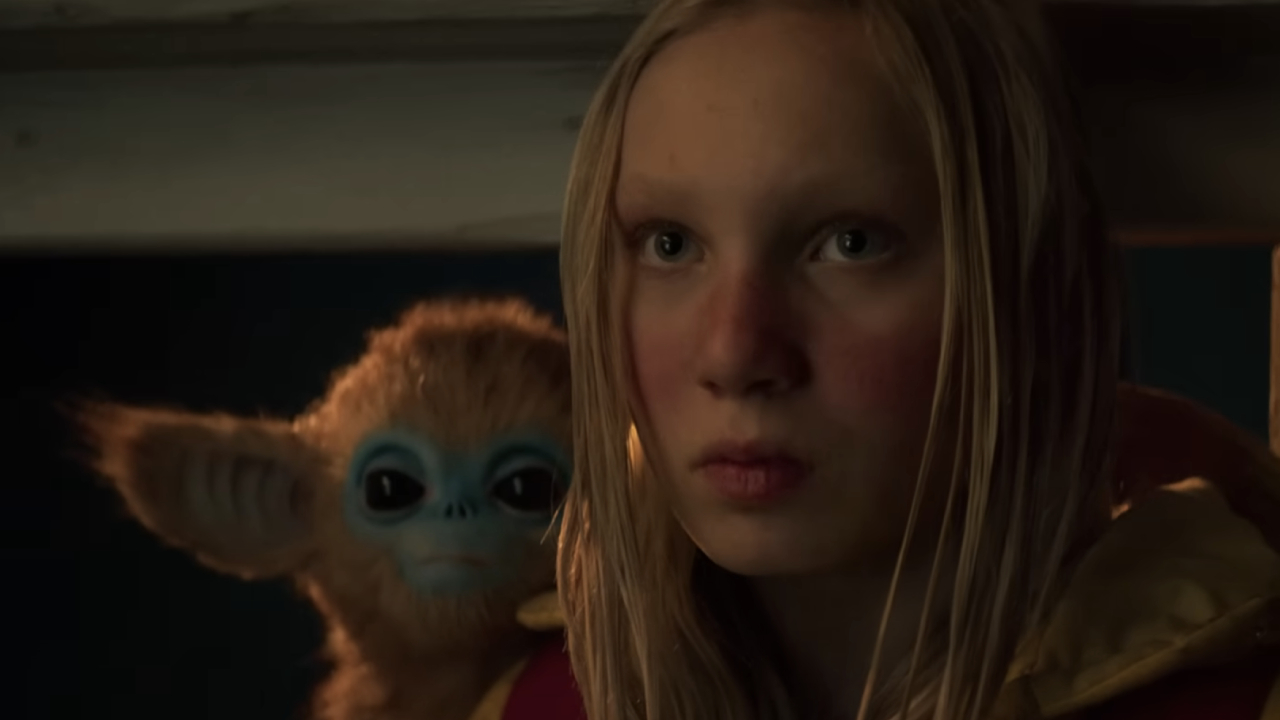Tape is a unique tale of revelation and confession; an exploration of how people can be driven into both. Based on the one-act play by Stephen Belber (The Laramie Project), who also penned the screenplay; it starts out like a typically bad short film with background buzzing sounds, peculiar camera angles, and next to no dialogue. I became completely prepared to hate this film because it did not appear to be going anywhere. My intuition that this was going to be a pretentious bore turned out to be false, as the story unfolded like a well-contained map, dishing out important details every few minutes to draw me in further and further.
The film is set entirely in a run-down hotel room in Lansing Michigan, where potentially violent weirdo Vince (Ethan Hawke), a drug-dealing volunteer fire fighter, is staying to attend a film festival showing a film directed by his old high school friend Jon (Robert Sean Leonard), a wordy, obsessive preppie who wants everything his way. When Jon comes to visit Vince to reminisce about old times, the reunion turns into an emotional nightmare as a heated argument over the past causes Jon to accidentally confess to a date rape he committed more than a decade ago on Vince’s old girlfriend Amy (Uma Thurman). The argument takes another turn for the worse when Jon discovers that Vince has recorded the entire conversation on a credit-card sized audiotape but does not say what he intends to do with it.
So why, then, did Vince record an entire conversation to squeeze out one bit of information that could ruin the budding filmmaker’s career? Jealousy and repressed anger maybe, or is it because Jon hides behind a wall of S.A.T. words and a nice-guy look, and is ripe to be taken off his throne? Finding out is what makes Tape as entertaining as it is provocative.
The revelations come less for the characters than to the viewers. Discussions are between characters that are almost completely aware of the past and simply trying to get others to confess. What will surprise the viewer are new revelations and provocative plot points that make Tape so fascinating. There are little hints (mostly in the first fifteen minutes) that an eruption between these characters is about to take place as the unspoken tension mounts. The aforementioned buzzing and camera angles start to find their place amid all the yelling.
Working to assist the setting are the exceptional performances. Every line flows out of the talented actors so naturally, and the casting of real-life couple Hawke and Thurman adds to the friction between the two male characters. Especially fragile is Thurman, who conveys being uncomfortable in such a brutal fashion by wandering her eyes away from her supposed rapist and stifling her speech to show how nervous she is. The dialogue feels as though it might have been improvised because it feels so smooth, yet nearly all of it is in connection with the story.
Some could say that the idea of three people holed up in a room is gimmicky; an interesting idea on paper with potential to garner plenty of attention from indie-junkies and young filmmakers alike. Director Richard Linklater and the talented trio have insured that three people in a room talking endlessly can be riveting and teach a lesson about dealing with past actions. This is essentially a filmed play, because the only difference is that this version features walls. But the confined setting intensifies the tension. With the minimal running time and constant dialogue, the film whisks along at a lightning pace.
This is a gem, a real surprise that never takes the easy way out of exploring the consequences of our actions and the paths to making life-altering decisions. Just when you think the story will become conventional, it reveals something you did not see coming. Tape is a testament to why blockbuster junkies like me should turn off the Dolby Digital and turn on the IFC every now and then.











